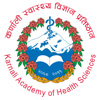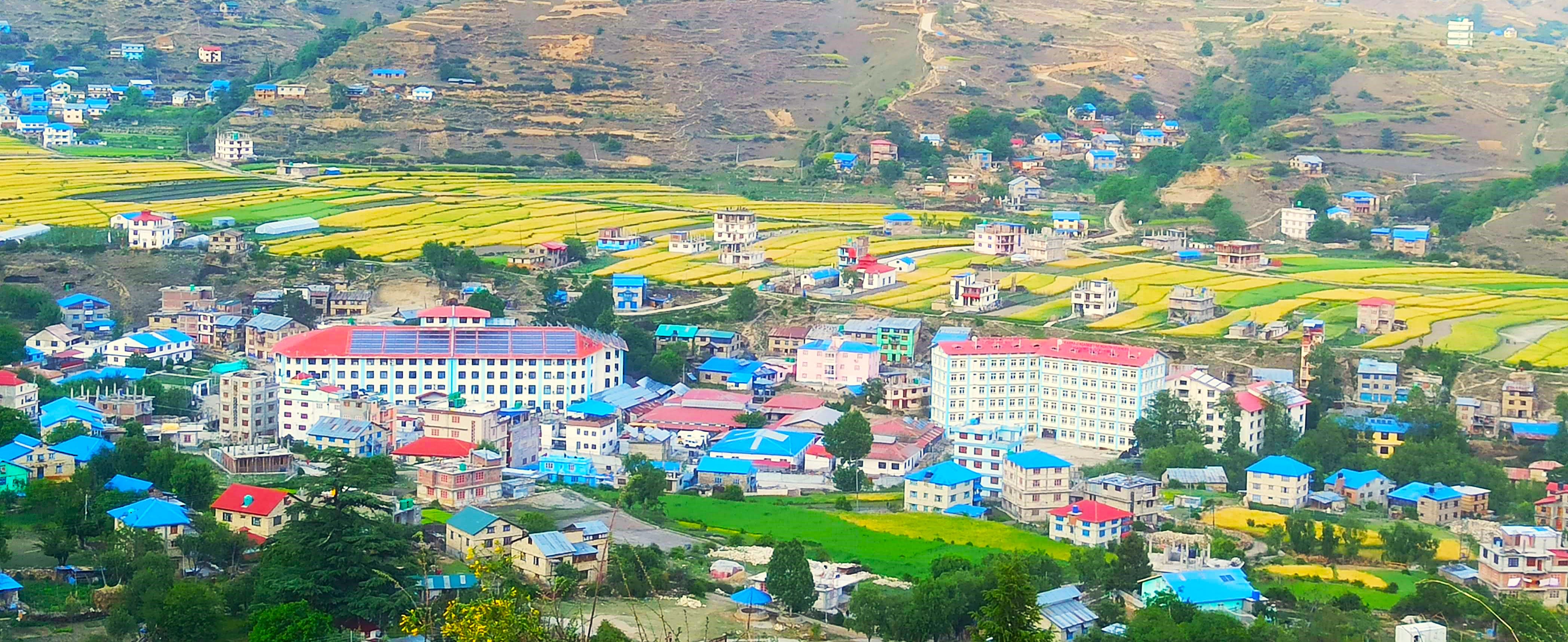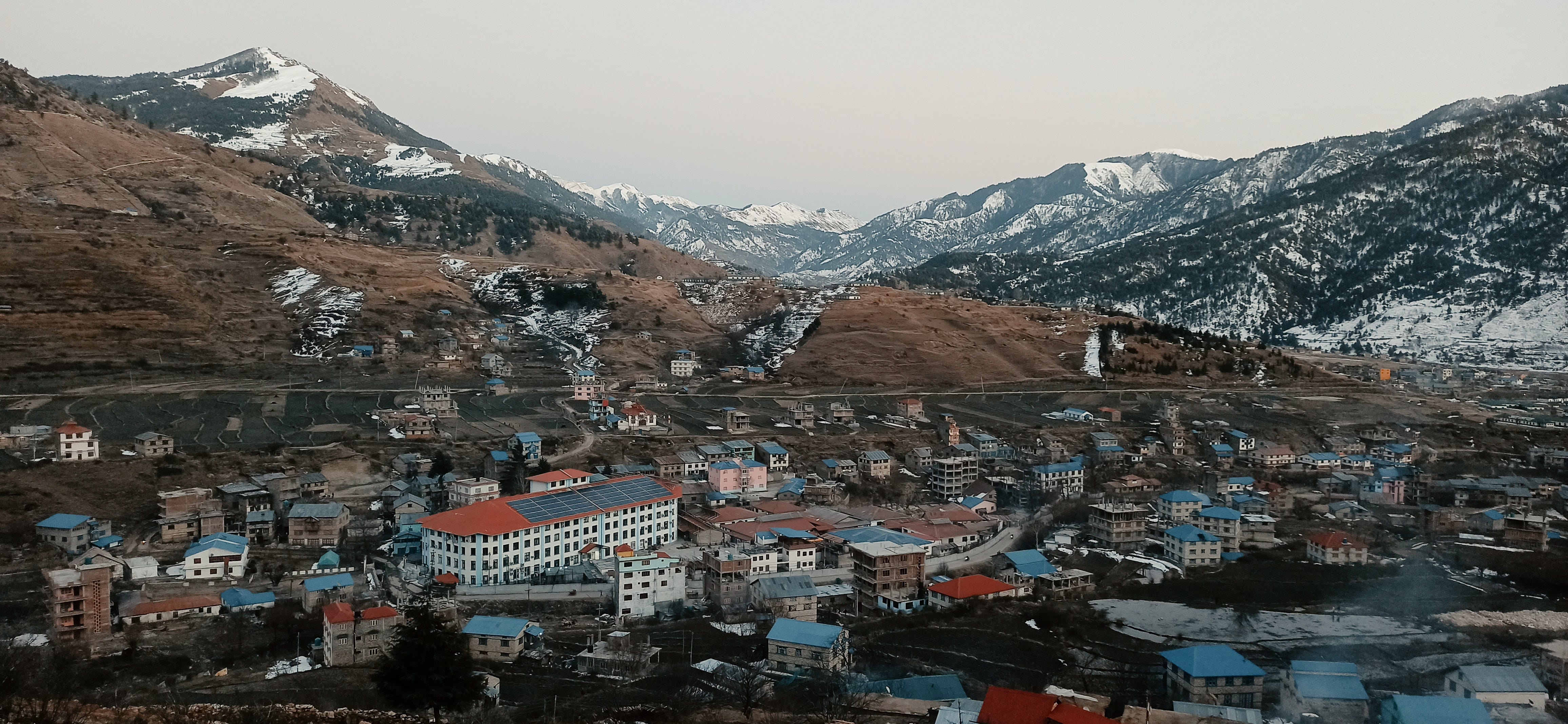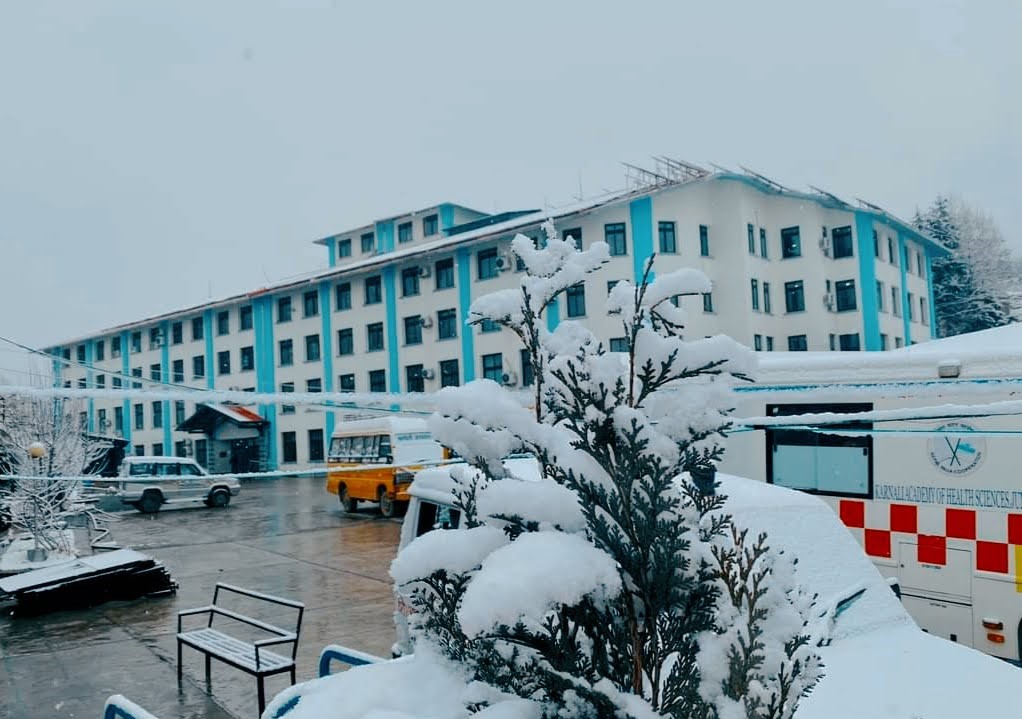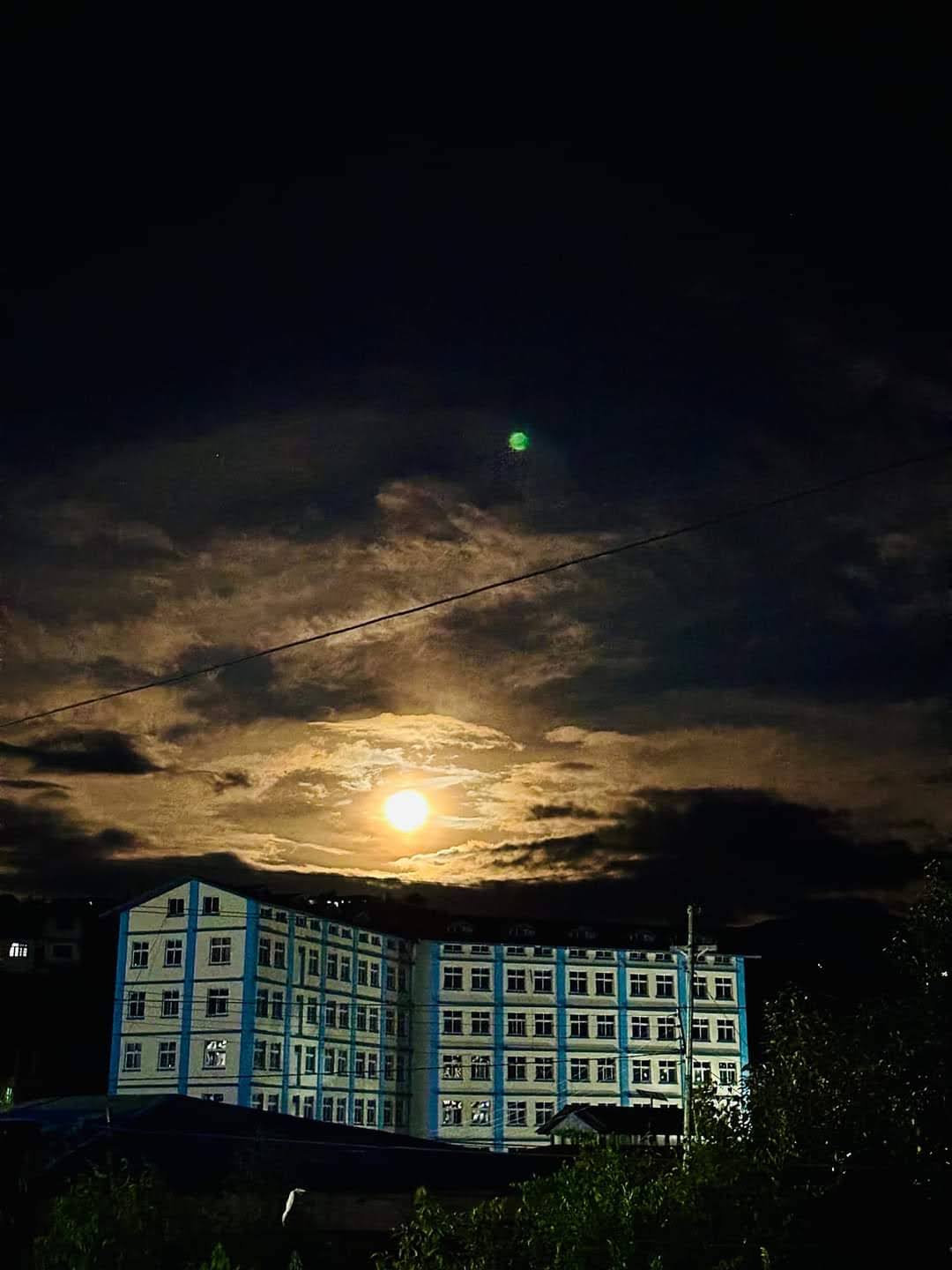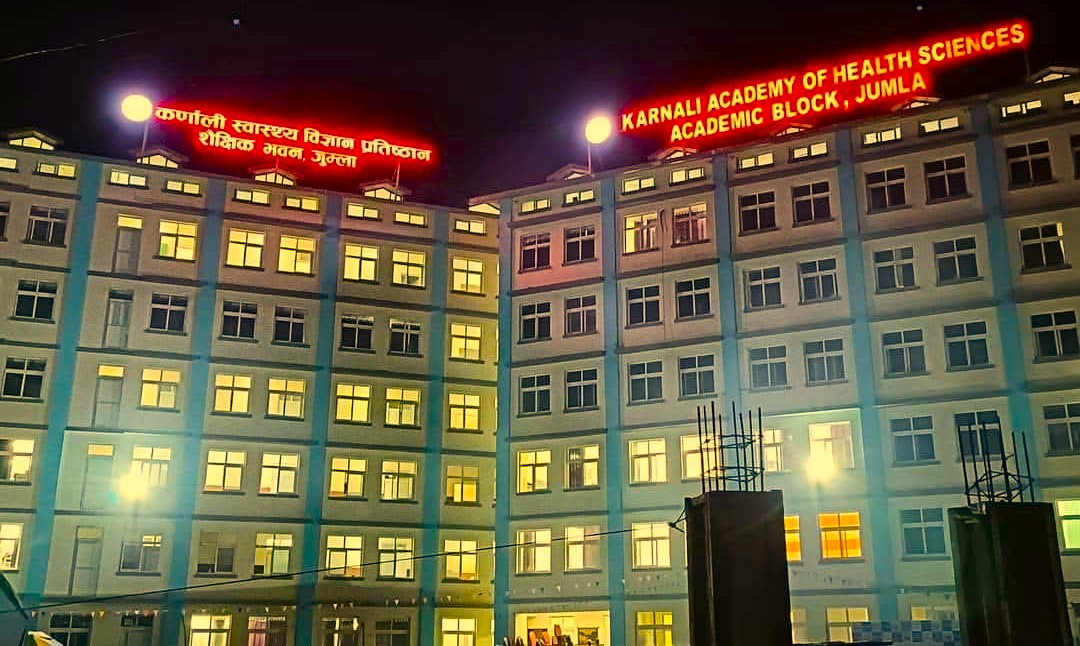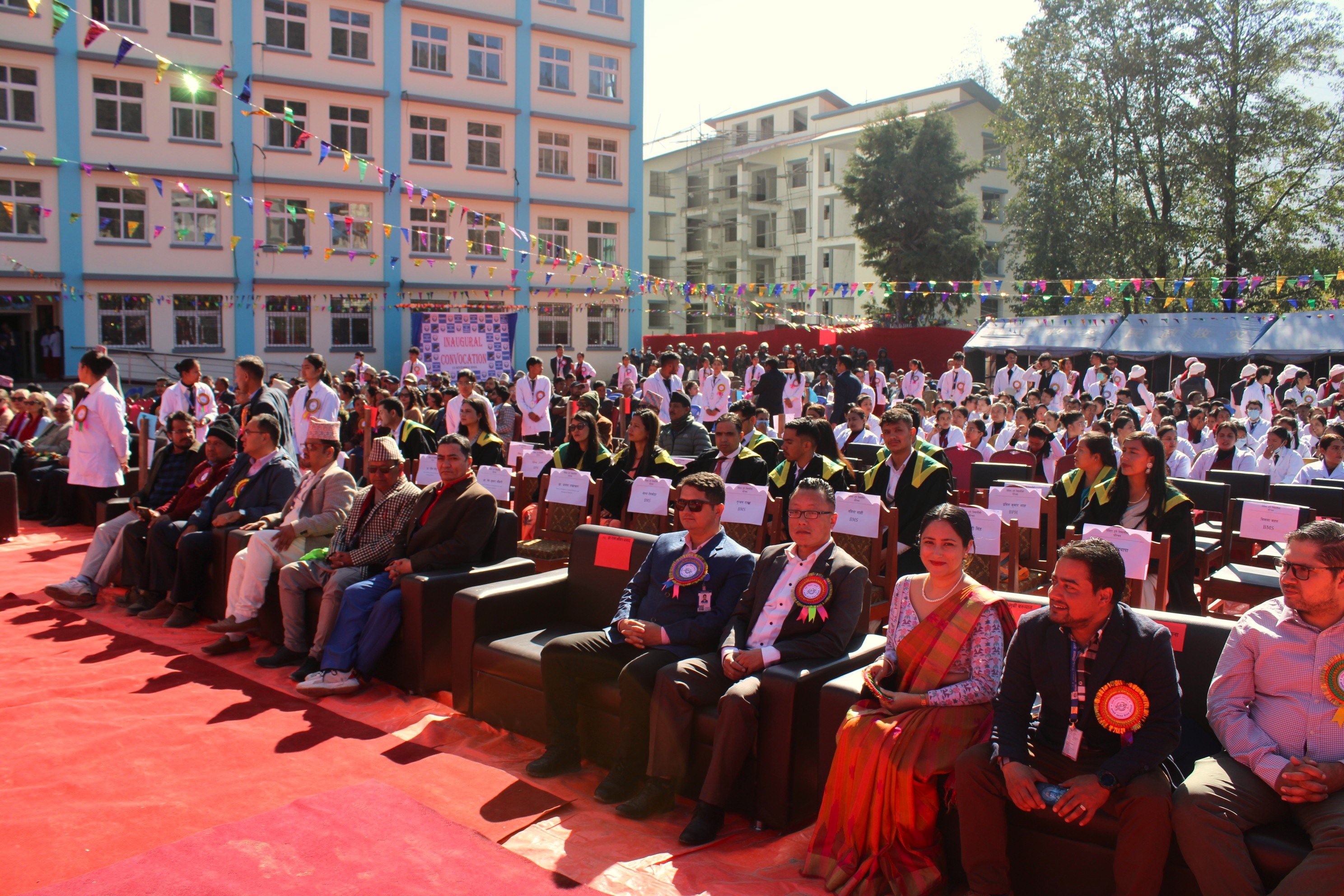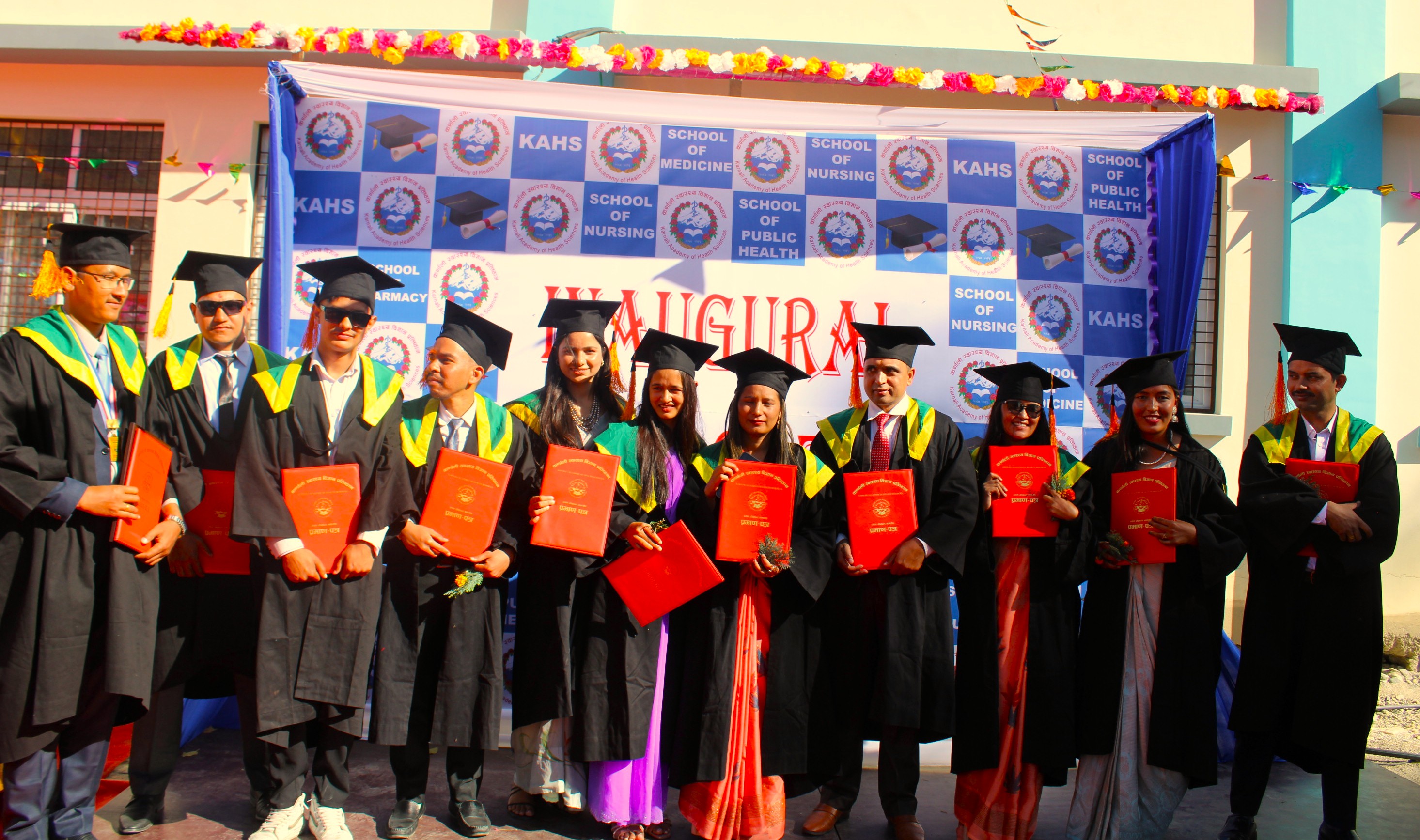Introduction
Karnali Academy of Health Sciences (KAHS) has been established in October 20, 2011 (2068/07/03), by an Act of parliament of Nepal by upgrading existing Karnali Zonal Hospital at Jumla. The goal of KAHS is to enable an access in Quality healthcare services and education for the people of backward (Pichhadiyako) areas in affordable cost by establishing health institute at Jumla and KAHS working district to produce skilled health professionals to deliver quality health care services and conduct health researches. The backward areas (9 districts) mentioned in act of KAHS are Karnali Zone: Humla, Jumla, Kalikot, Dolpa, Mugu districts, Bheri Zone: Jajarkot district, Seti Zone: Bajura, Bajhang & Achham districts and remaining districts of Karnali Pradesh Includes Surkhet, Dailekh, Rukum and Salyan according to federal system of Nepal.
The Nepal government owned Karnali Zonal hospital and started its services as Karnali Academy of Health Sciences, Teaching hospital from 17th Kartik, 2069. From the very beginning the teaching hospital has started outpatient, inpatients, diagnostic services (Lab, X-ray, USG, ECG etc) and operation theatre in existed facility. The services have been upgraded and expanded its scope of services in health care and academy each year.
There are 10 districts (Jumla, Dolpa, Humla, Mugu, Kalikot, Rukum-west, Jajarkot, Salyan and Surkeht) in Karnali Province. Karnali is the largest province of Nepal with an area of 24,453 km2 (% of total area). The population of the province is 1,701,800, (% of total population) which is least in ranking of province. The province is surrounded by Gandaki province in east, Province No. 5 in south-east, and south, province No. 7 is in west and China in north.
There is high mountains land in north and mid hills. There is a Kubi Gangri, Changla and Kanjiroba Mountain in north. The Shey Phoksundo National Park with Phoksundo lake is the largest national park of Nepal and Rara lake is the largest lake of Nepal which are located in Karnali Pradesh. Karnali River is the biggest river of the province and longest river of Nepal.
Mission
Karnali Academy of Health Sciences prepares the next generation of health professionals and leaders to become vital contributors to the delivery and advancement of health care to those who are marginalized and living in backward areas. Our mission is accomplished through educational excellence, innovative research, evidence-informed patient-centered care, public health advocacy, and collaborative community engagement.
Vision
KAHS is an autonomous health sciences university that visualize at providing interdisciplinary leadership for new directions in health promotion and wellness, as well as illness care and disease prevention at all levels, in the community and beyond through innovation in education, practice, research, and scholarship for Nepalese students, especially targeting to those who reside in backward and rural area as well as those who are socially marginalized. It will be a national centre for providing health services, prestigious centre for biomedical and health system research, centre for excellence in implementing complete total human development through \\\'health\\\' as main agenda in its neighboring teaching districts.
